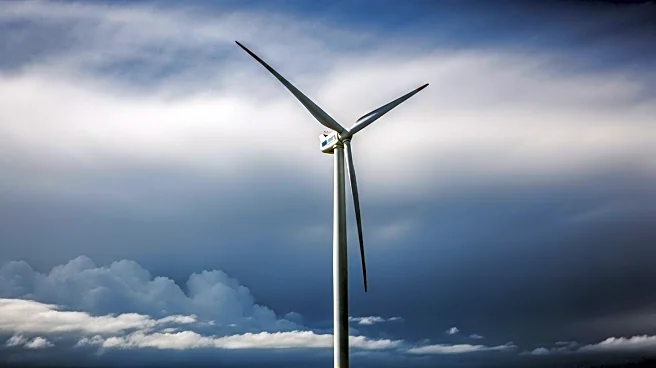What's Happening?
Fitch Ratings has placed Eversource Energy and its subsidiaries on 'rating watch negative' following the Trump administration's stop-work order on the Revolution Wind offshore wind farm. Despite selling its 50% stake in the project to Global Infrastructure Partners, Eversource remains financially obligated for certain project costs. The stop-work order introduces uncertainty, potentially leading to construction delays and cost overruns, which could result in a credit rating downgrade for Eversource. The company has recorded $360 million in liabilities related to increased construction costs and delays. Eversource serves approximately 4 million customers across New Hampshire, Connecticut, and Massachusetts.
Why It's Important?
The stop-work order on the Revolution Wind project poses significant financial risks for Eversource, potentially affecting its credit rating and financial stability. This development highlights the broader impact of regulatory decisions on the energy sector, particularly in the context of offshore wind projects. The uncertainty surrounding the project could lead to increased costs and delays, affecting stakeholders involved in the energy transition. The situation underscores the importance of regulatory stability and the potential consequences of abrupt policy changes on utility companies and their financial health.
What's Next?
The outcome of the lawsuit filed by Ørsted to lift the stop-work order will be crucial in determining the project's future. If successful, construction may resume, potentially mitigating cost overruns. However, the project remains subject to judicial review and uncertainty. Eversource's financial obligations and the potential credit rating downgrade will depend on the resolution of these legal and regulatory challenges. Stakeholders, including investors and regulatory bodies, will closely monitor developments to assess the impact on Eversource's financial position and the broader energy sector.









